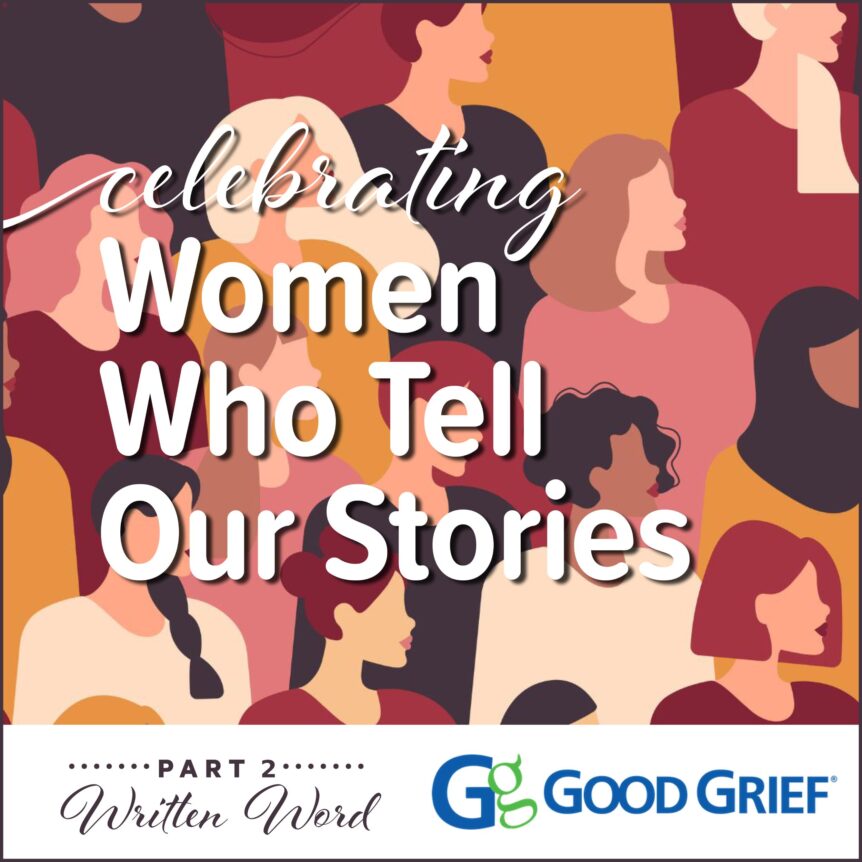March is Women’s History Month, and the theme for 2023 is celebrating women who tell our stories. In this three part blog series, we will highlight stories told by women about grief across different mediums.
Part 2: Written Word
If you’re not ready for movies on grief, women have written many words–fiction, non-fiction and poetry–about grief.
Nan Bauer-Maglin, for example, edited a book of essays written by other women titled Widows’ Words: Women Write on the Experience of Grief, the First Year, the Long Haul, and Everything in Between. A former instructor at the City University of NY, she now spends part of her time working with Girls Write Now. Or, check out Mary-Frances O’Connor’s book titled, The Grieving Brain: The Surprising Science of How We Learn from Love and Loss. O’Connor is an Associate Professor of Clinical Psychology and Psychiatry at the University of Arizona.
Martha Whitmore Hickman lost her 16-year-old daughter during a Colorado mountain vacation, when the teenager fell from a horse and died. In an effort to process her own sorrow, Whitmore turned to writing and left behind a book titled: Healing After Loss: Daily Meditations for Working Through Grief. The book contains quotes from many different authors and well-known figures–365 in all–so that the reader can begin anywhere in the book.
In her introduction, Whitmore noted, after someone we love dies, “we are left to enter a new and strange land-a land where one of the persons who has given meaning to our life is gone.” Whitman offers this wisdom: “Grief takes its time, and for a while it occupies all our time.”
There are many books about grief written for children; and many of them are written by women. One, written by British science writer, Isabel Thomas, has just won a AAAS/Subaru prize and is titled, Fox: A Circle of Life Story. Thomas, speaking about the why of her book said, “I launched the book with a discussion on BBC Woman’s Hour, about my experiences of talking to my own children about the science of death as a part of nature and life.”
Chanel Brenner turned to poetry after the death of her 6-year-old son, Riley. He died of a brain hemorrhage, the result of a rare genetic malformation which was diagnosed when he was five-years-old. “Poetry became my lifeline,” Brenner said in an interview, noting that when her son was two-years-old, she had taken a writing class, a decision which eventually helped her through her grief.
In May, Brenner will join Evelynn Moon, the Director of Education for Good Grief, via Zoom for a conversation about grieving and her poetry. The conversation is open to anyone. Pre-registration can be done through this website.

